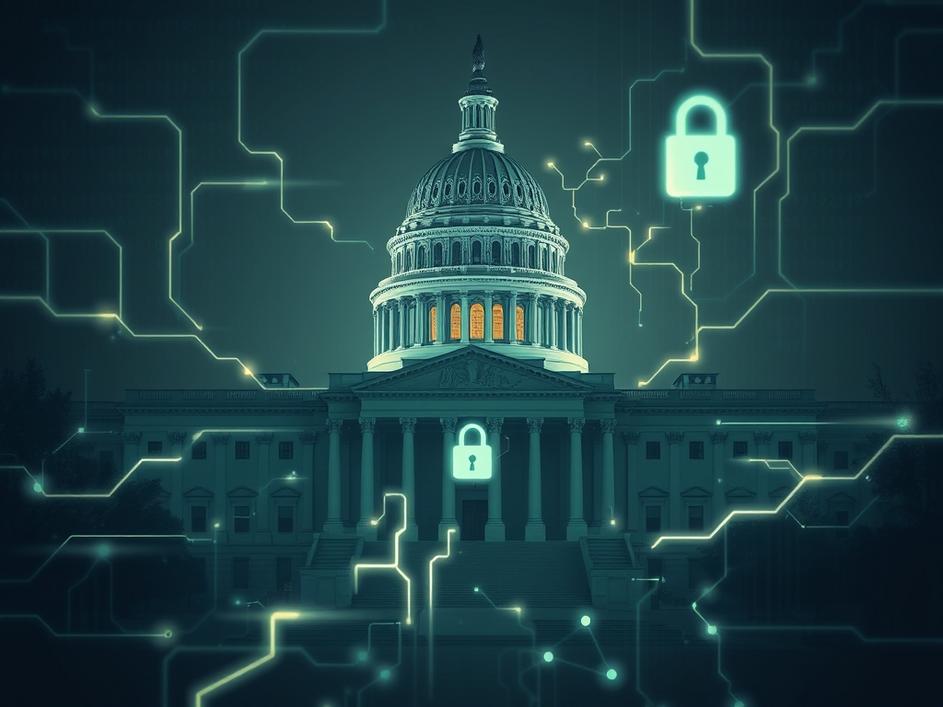


We are a digital agency helping businesses develop immersive, engaging, and user-focused web, app, and software solutions.
2310 Mira Vista Ave
Montrose, CA 91020
2500+ reviews based on client feedback

What's Included?
ToggleThe Congressional Budget Office, or CBO, is a truly vital group in Washington D.C. Think of them as the nation’s impartial accountant and economic forecaster. Their main job is to crunch massive amounts of data. They give Congress unbiased reports on how much proposed laws might cost. They also show what different policies could do to our economy over the long run, giving lawmakers a clear picture of potential effects. The CBO delivers the facts and figures that elected officials need to make big decisions about spending, taxes, and the country’s economic direction, all without bias. So, when news recently broke that the CBO confirmed it was hacked, it wasn’t just another tech story. It’s a very big deal, signaling a deep threat to the information our government relies on. This isn’t just about a computer system being breached; it’s about potentially compromising the data that shapes America’s financial stability and future. This kind of event can shake confidence in government operations.
Specific details about the hack are still scarce, which is standard for sensitive government incidents. A CBO spokesperson confirmed they are actively looking into what happened, how it occurred, and who might be behind it. They also mentioned that some specific issues have already been found in their systems and are being dealt with to patch vulnerabilities. But beyond these basic facts, the full scope of the breach — like the attackers’ identity, how long their access lasted, or precisely what information was viewed or taken — isn’t public yet. This tight-lipped approach often indicates a complex investigation is ongoing, and the situation is delicate. It makes sense, as rushing out unverified details could compromise efforts to secure systems or inadvertently help the attackers. But for those watching, it leaves many unsettling questions about the safety and integrity of such crucial government data.
You might wonder why sophisticated hackers would target an agency like the CBO. It’s not like they directly hold top-secret military plans or personal financial records. But the information they do possess is, in its own way, incredibly valuable and sensitive. The CBO works with highly sensitive economic projections, detailed analyses of proposed legislation before it becomes public, and crucial long-term budget forecasts. These reports paint a picture of where the nation is heading. Imagine knowing, well in advance, how a major economic policy might affect certain industries, or understanding the financial impact of a new social program months before it’s announced. This privileged foresight could be exploited for many purposes. This includes making profitable financial decisions based on insider knowledge, or giving foreign adversaries a strategic advantage in understanding America’s economic vulnerabilities. It’s not about stealing money directly. Instead, it’s about acquiring strategic information that could be used for political maneuvering, economic espionage, or intelligence gathering against the U.S. government. That makes their data a prime target for highly motivated attackers.
A breach at an agency as important as the CBO isn’t just about data loss; it deeply erodes public trust in government institutions. The CBO’s main strength comes from its reputation for being independent, impartial, and consistently accurate. If there’s even a hint of doubt about the integrity of their data – whether it was accessed, altered, or seen by the wrong people – it creates a huge problem for the legislative process. Lawmakers might question the reports they receive. This could lead to delays in decision-making or, worse, poor policy choices based on compromised information. If the public doubts official numbers from a vital government source, it can feed into a broader distrust of all institutions. In a world where accurate information is power, any compromise to a trusted source like the CBO can have far-reaching effects on economic stability, market confidence, and national security planning. It makes it harder for elected officials to do their jobs effectively and honestly for the American people.
This incident at the CBO reminds us that the fight against cyber threats is never-ending. Government agencies, big corporations, small businesses, and even individuals are constantly under attack. For crucial entities like the CBO, the stakes are incredibly high. This means they cannot just set up defenses once and forget them. They need to be always updating security, always vigilant for new threats, and continually preparing for the next attack. This isn’t just about having the latest software. It’s fundamentally about having skilled people dedicated to cybersecurity, clear and enforced security policies, and a strong culture that prioritizes digital security at every level. We live in a digital age where borders mean less to sophisticated attackers. This makes robust, layered cybersecurity a core part of national defense and economic stability. Every breach, no matter how minor, offers lessons in how to build stronger digital walls.
The recent hack at the Congressional Budget Office is a serious event that demands our full attention and a thorough response. It shows us that even the most important and seemingly secure parts of our government are not immune to digital threats. As the investigation continues, we hope to learn more about what happened, who was responsible, and how to prevent similar attacks. But beyond the specifics, this incident underlines a bigger truth: protecting our vital information and digital infrastructure in the modern world is a continuous, challenging battle. It requires consistent investment in technology and human expertise. It also needs smart, adaptive security strategies, and a shared understanding that data integrity is fundamental to our democracy and economy. We need to be proactive, not just reactive, in safeguarding the complex digital foundations upon which our nation’s future depends.



Comments are closed